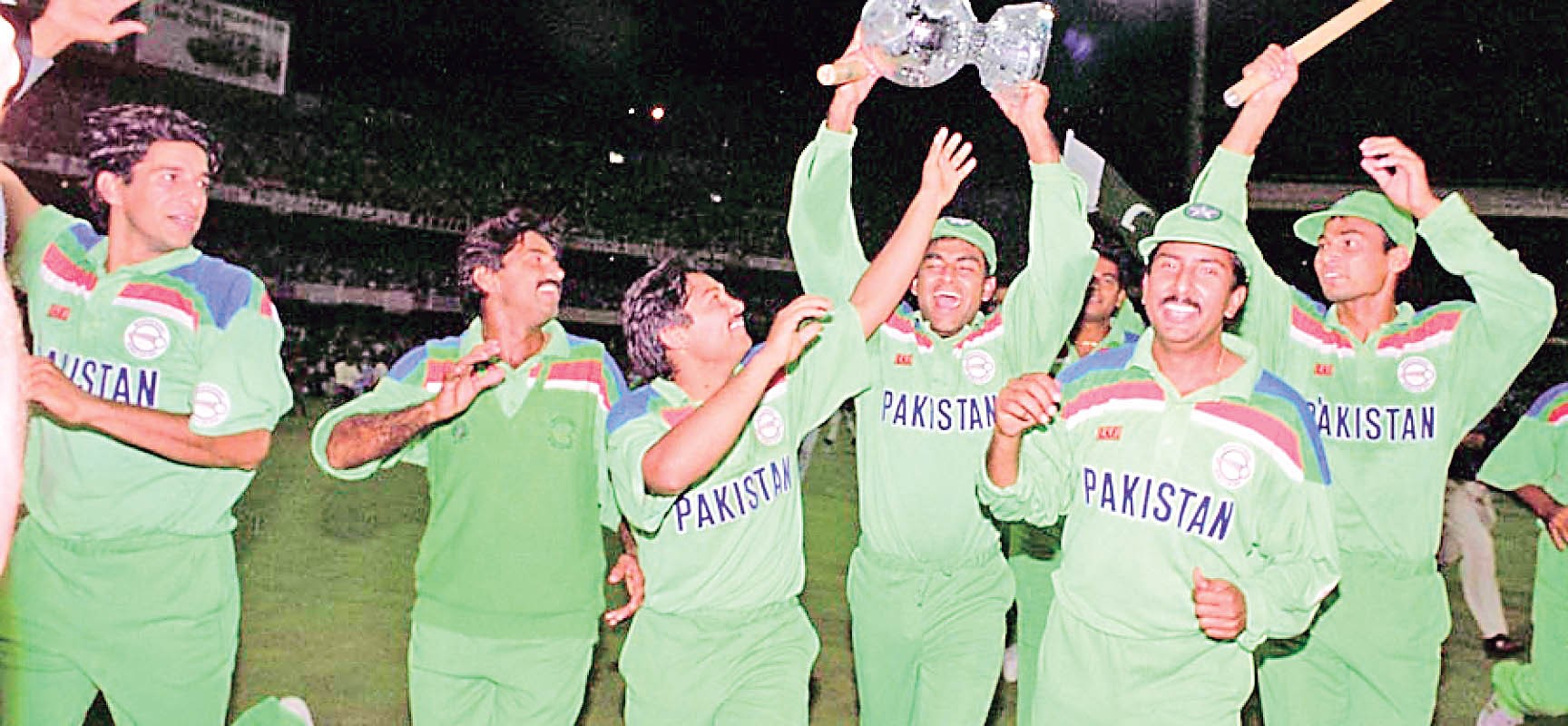

There was a time when Pakistan had a number of mentally tough players who could turn a One-day International around within a few overs. In the bowling department, we had Wasim Akram, Waqar Younis and Saqlain Mushtaq. And in the batting department, we had Javed Miandad, Inzamam-ul-Haq and Abdul Razzaq. These players gave Pakistanis a lot of thrilling victories in matches when it seemed all was lost.
Of these players, Miandad was the strongest, psychologically -- as Sunil Gavaskar testified in an episode of Comedy Knights with Kapil Sharma recently. Who can forget the way he took Pakistan to victory in Sharjah in 1986! People usually only mention the six he hit off the last ball of that match. It should also be remembered that Miandad chased the target set by India almost single-handedly. He had had little support from the lower middle order, which comprised Imran Khan, Manzoor Elahi and Wasim Akram. He made 116 off 114 balls, hitting three sixes and three fours.
Next to him is Inzamam who was, without any doubt, brilliant at chases, even if he had only the tail-enders with him. His nerves of steel denied Australia what could have been a historic win in the first Test in Karachi in 1994.
Batting at No 8, he added 57 runs with No 11 Mushtaq Ahmad. He achieved many similar feats during the rest of his career, including his 138 not out against Bangladesh in Multan in 2003, which once again gave Pakistan a one-wicket victory. In such situations Inzamam was far better than the Little Master Sachin Tendulkar, although the latter scored far more centuries than the former.
Abdul Razzaq was also -- I am using the word ‘was’ because his return to the team seems now highly unlikely -- a very gritty player. In the beginning of his career -- I mean, in 1999 and early 2000s when he had cemented his place in the team -- he turned many a match around with both bat and ball in crunch situations. His bowling ability took a downturn from mid-2000s, but he remained a fighting batsman till the 2012 World Twenty20. His magnum opus was the century against South Africa in UAE, when he scored 109 off just 72 balls, scoring 63 of the last 65 runs required.
Wasim and Waqar were particularly good at stifling any chase even if the chasers were the mighty West Indians (yes, they were once mighty), the all-conquering Australians, the haughty English or the arch-rivals Indians. I can recall many a match in which one of these two or both combined turned the game upside down and gave Pakistan a victory out of nowhere. For instance, in the second ODI against New Zealand in Auckland in 1994, Pakistan had lost six wickets for 65. Wasim first scored 33 runs while batting at No 8, helping Pakistan manage 146. Then he took four wickets for just 23 runs to help bowl New Zealand out for 110.
Waqar and Saqlain were also excellent at bowling death overs. On many a occasion they smothered the chase of the opponents when they were going smoothly.
If Pakistan are to win the 2015 World Cup, they will have to develop the qualities all these players had. In the recent past, Shahid Afridi, Fawad Alam and Sohaib Maqsood showed in some matches that they are able to handle pressure well. If they and a few others in the team can do that Down Under, Pakistan can hope to reclaim the trophy they had won in the same lands 23 years ago.